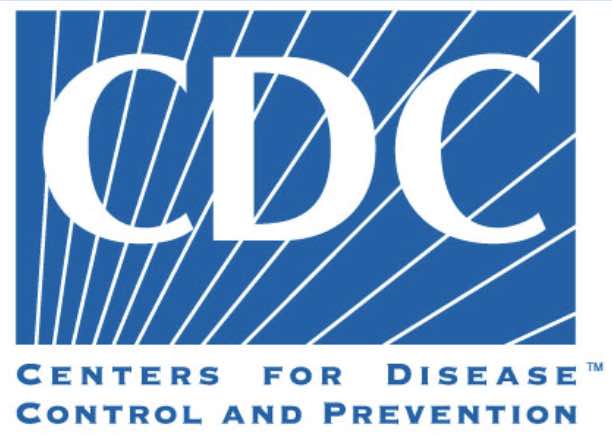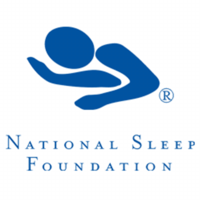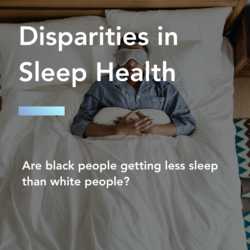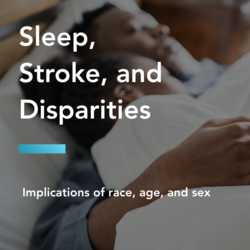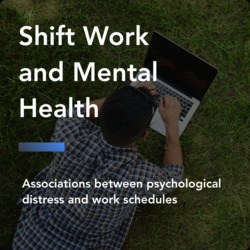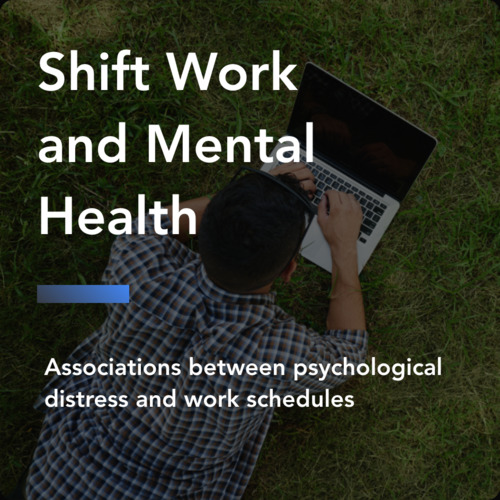Top Danger #1: Overall Mortality
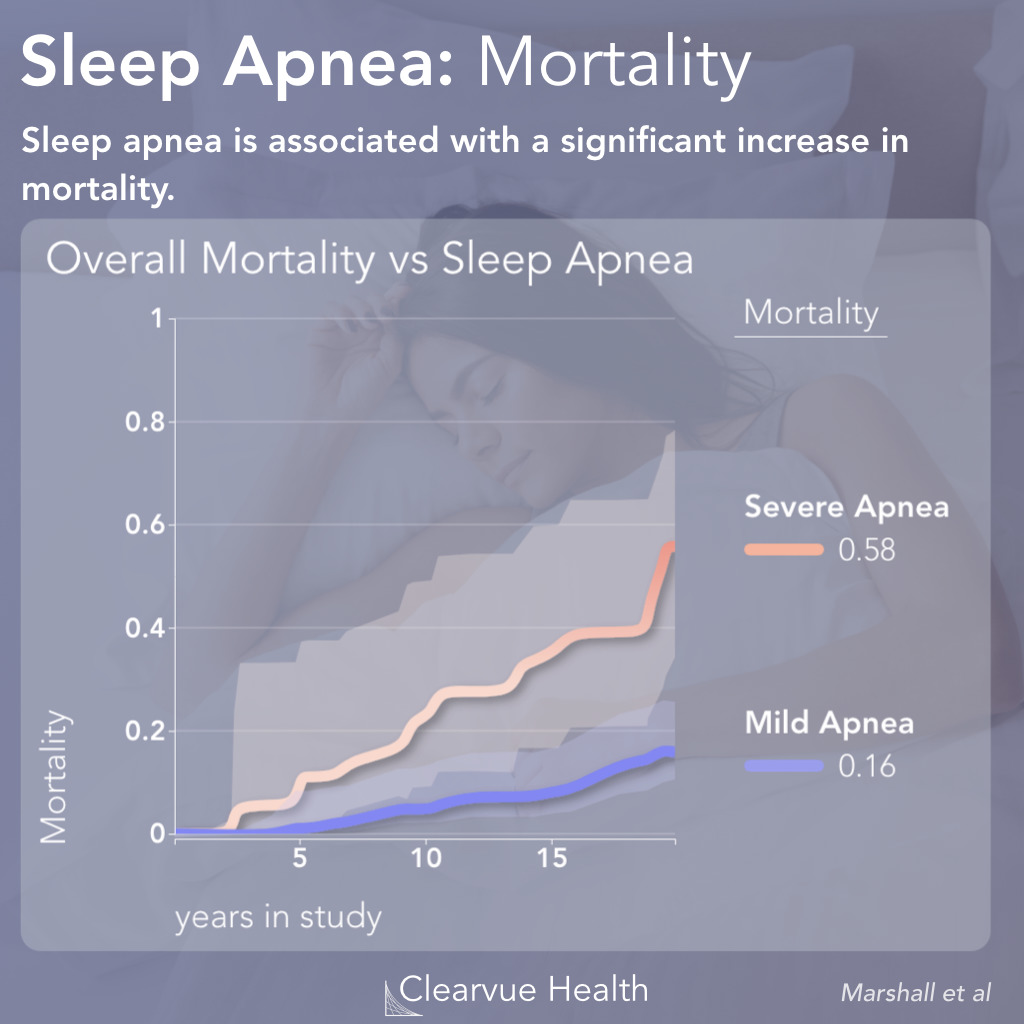
Figure 1: Sleep Apnea and Overall Mortality. Individuals with severe sleep apnea showed a significantly higher risk of overall mortality. After adjusting for age, gender, BMI, smoker status, cholesterol, and diabetes among other factors, individuals with moderate to severe sleep apnea still had a 4.2x risk of all cause mortality. This covers death from any cause. Over the 20 years of the study, just under 60% of individuals with severe sleep apnea died of any cause compared to 16% of those with mild apnea.
If you snore a lot at night, it might be sleep apnea and it might be dangerous.
Sleep apnea is a common and under-diagnosed condition where you stop breathing during sleep. Individuals who have sleep apnea often report insomnia, excessive daytime sleepiness, and dry mouth upon waking up. Their partners may report loud snoring and short intervals where breathing stops during the night.
This condition is caused by the muscles in the back of the throat blocking your airway, making it difficult to breathe.
Many people with sleep apnea don't know that they have it. Unfortunately, research is increasingly showing that this seemingly innocuous condition can carry serious consequences.
A study carried out in the town of Busselton, Western Australia provides of the best data we have yet on sleep apnea.
Volunteers who had severe sleep apnea had a significantly higher risk of dying from any cause.
From this study, researchers showed that sleep apnea increases the risk of overall mortality by around 4.2x, even after adjusting for age, gender, BMI, smoker status, cholesterol, and diabetes.
Source: Sleep apnea and 20-year follow-up for all-cause mortality, stroke, and cancer incidence and mortality in the Busselton Health Study cohort.
This study on sleep apnea used overall mortality as an endpoint. Overall Mortality represents a person's risk of dying from any cause. This corresponds to a lower life expectancy. Diseases and other factors such as smoking can increase overall mortality. Healthy lifestyles with good diets and exercise can decrease overall mortality.
Sleep apnea study methods
Researchers had 397 residents in Busselton undergo a overnight study of their sleep where their sleep apnea was measured with a MESAM IV device. They were then followed for 20 years. Data on outcomes was obtained by examining medical records.
Top Danger #2: Stroke
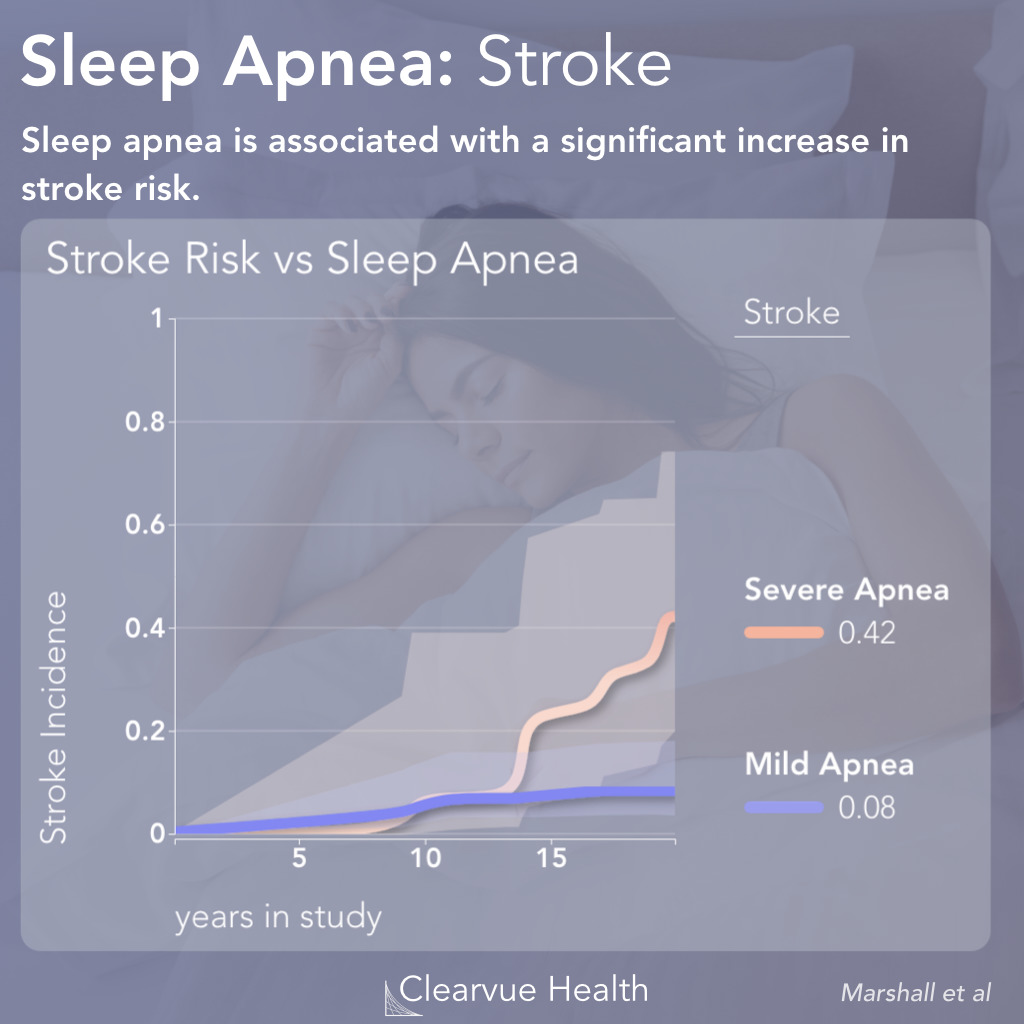
Figure 2: Sleep Apnea and Stroke. Individuals with severe sleep apnea showed a significantly higher risk of stroke. After adjusting for age, gender, BMI, smoker status, cholesterol, and diabetes among other factors, individuals with moderate to severe sleep apnea still had a 3.7x risk of stroke. Over the 20 years of the study, just over 42% of individuals with moderate to severe sleep apnea had a stroke, compared to just under 10% of individuals with mild sleep apnea.
Volunteers who had sleep apnea were more likely to get strokes. The mechanism behind this is unclear. But, as you can see from the chart above, individuals who had sleep apnea were much more likely to get a stroke after around 15 years from the start of the study.
Only around 8% of volunteers with mild sleep apnea were hospitalized for stroke, compared to over 40% of those with moderate to severe sleep apnea.
Top Danger #3: Cancer
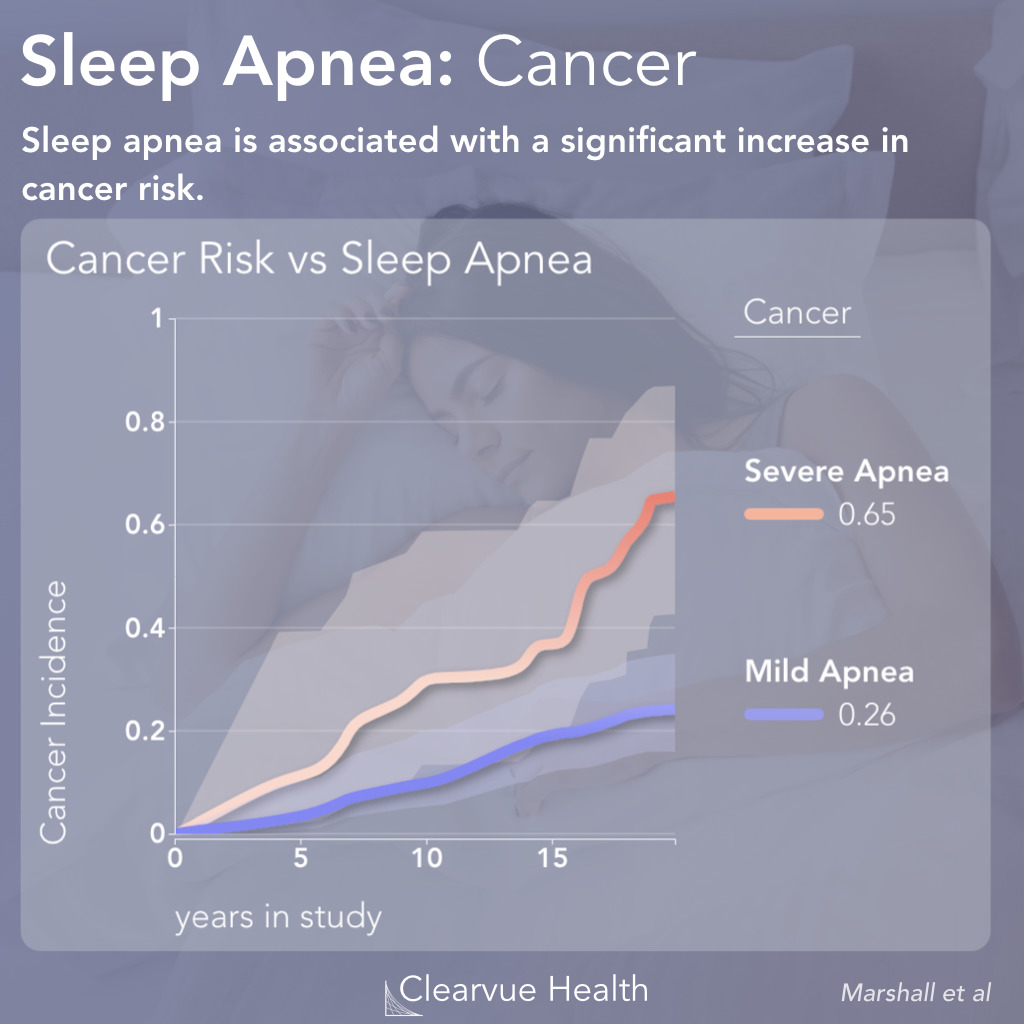
Figure 3: Sleep Apnea and Cancer. Individuals with severe sleep apnea showed a significantly higher risk of cancer. After adjusting for age, gender, BMI, smoker status, cholesterol, and diabetes among other factors, individuals with moderate to severe sleep apnea still had a 2.5x risk of cancer. Over the 20 years of the study, just over 60% of individuals with moderate to severe sleep apnea developed cancer, compared to under 30% of individuals with mild sleep apnea.
Sleep apnea had an unexpected effect on cancer. Volunteers with sleep apnea were signficantly more likely to develop cancer over the 20 years of this study.
We don't however know whether sleep apnea causes cancer or whether there are other factors that somehow tie these together.
This link will require further study before we can confirm it with certainty.
Keys to Health
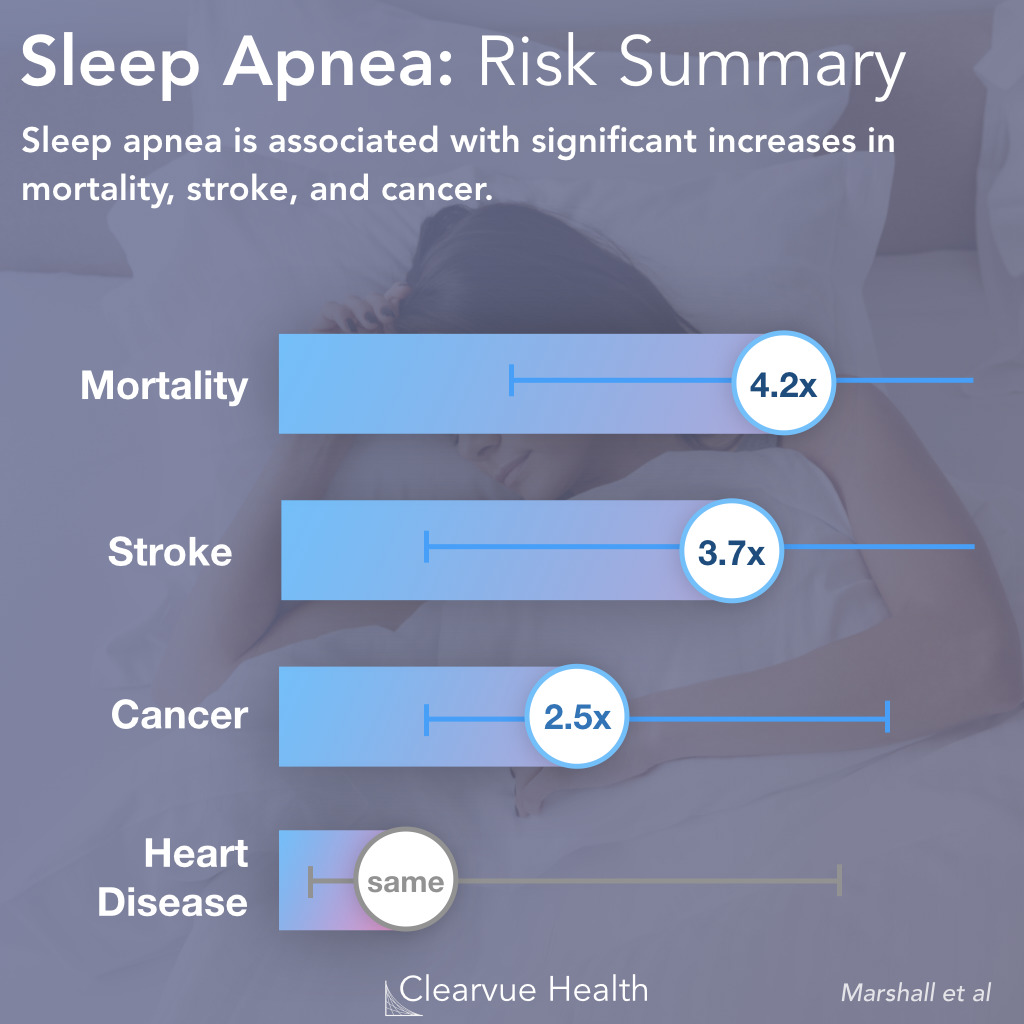
Figure 4: Sleep Apnea and Health Risks. Individuals with moderate to severe sleep apnea showed a significantly higher risk of Mortality, Stroke, and Cancer over 20 years.
Sleep apnea is a potentially dangerous condition. If you are snoring and feeling tired in the morning, talk to your doctor.
If left untreated, moderate to severe sleep apnea can worsen your sleep and worsen your overall health. Surprisingly, mild sleep apnea did not carry more risks than not having sleep apnea at all.
This study provides strong long-term estimates on the dangers of sleep apnea. Sleep apnea often occurs alongside other conditions. This makes it difficult to isolate the exact effects of sleep apnea beyond comorbid conditions such as heart disease and diabetes. However, by using objective measurements of sleep apnea and by good variable adjustment, the researchers here provide compelling evidence and estimates.
+
+
Sample Size - This study used a very large sample set which increases the validity of the results.
+
Variable Adjustment - The study adjusted for age, gender, BMI, smoker status, cholesterol, and diabetes among other factors.
+
Strength of Findings - This study found significant and clinically relevant effects.
+
Data Collection - This study measured sleep apnea with a device which reduces risk of bias compared to self-reported data. Researchers measured outcomes through medical records.
-
Potential for Bias - This study still carries a significant risk of bias. While the study adjusted for many variables, it is still quite possible that the volunteers with sleep apnea had other confounding variables that drove the effect size we see in the study. For example, those with sleep apnea may be less health conscious, which would be difficult to completely factor out.
Centers for Disease Control
Snoring may be more than just an annoying habit – it may be a sign of sleep apnea. Persons with sleep apnea characteristically make periodic gasping or “snorting” noises, during which their sleep is momentarily interrupted. Those with sleep apnea may also experience excessive daytime sleepiness, as their sleep is commonly interrupted and may not feel restorative.
National Sleep Foundation
Chronic snoring is a strong indicator of sleep apnea and should be evaluated by a health professional. Since people with sleep apnea tend to be sleep deprived, they may suffer from sleeplessness and a wide range of other symptoms such as difficulty concentrating, depression, irritability, sexual dysfunction, learning and memory difficulties, and falling asleep while at work, on the phone, or driving.
Clearvue Health is not affiliated with above organizations. The information above is provided to highlight and link to useful further reading.





